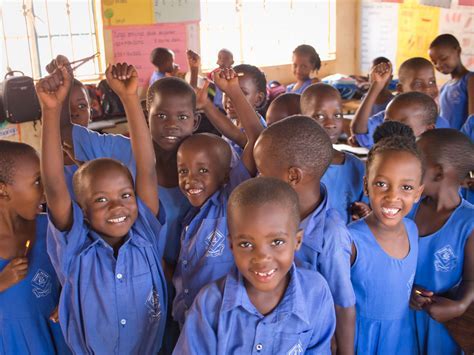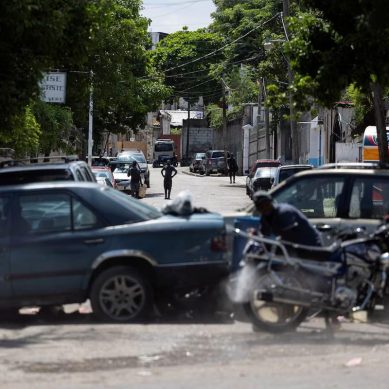
There two words in the title of this article – all describing Uganda’s education system during the time education has been firmly in the hands of First Family in State House Entebbe: death and castesm.
Death here implies decay and collapse of the education system.
Castesm is derived from the word caste is a social class, especially a one where members do not allow others to join it. We can also characterise caste as the ruling class or a system of dividing society into classes based on differences in origin, ethnic origin, family origin, rank or wealth. Castesm is akin to the defunct South African white supremacist discriminatory sociopolitical system based on ethnic segregation against the Black people and which is called Apartheid.
This article seeks to submit that Uganda education system has sunk back to Apartheid-like with the castesm based on ethnicity, wealth, rank, family and even past participation in rebel activities in Luwero Triangle, flourishing in the country, and ensuring that the political system and process is firmly in the hands of the castes fuelling the new apartheid system in Africa.
Education is the most formidable tool to build such a system. It is as firmly in the hands of the First Family, which is also firmly in control of the political process.
The political process has produced cadres that are controlling the electoral, legislative, executive and judicial process, to ensure the results, laws, policies and judicial processes service and sustain the kind of discriminatory education system and discriminatory political system being built by the First Family to the same end: castesm in education and the whole society.
No wonder the rule of families and hereditary politics are increasingly taking root in the sociopolitical dimension of the country’s leadership and governance as the year 2050 approaches.
The perennial Opposition leader since the beginning of New Millennium, Dr Kiiza Besigye, recently revealed in a video, which went viral, that there is a school in Kiruhura in Ankole, which is exclusive and admits only children of one ethnic group from nursery to Advanced Level, and the products of the school end up in elite universities abroad. What is sad is that public money is spent to educate the children at the said school while the children of the rest of Uganda are subjected to poor quality education in SEED schools.
What has emerged over the years is that traditional schools, which were the pillars of Uganda’s education in the colonial and the post-colonial times until recently, have been overtaken by schools in Ankole. Recent Primary School Leaving Examination results indicate that the greatest number of children who got Aggregate 4 and 5 were from western Uganda. Traditional public schools, used to preferring Aggregate 4 and 5, will therefore be clogged by children from the western Uganda as the children of the poor in eastern, central and northern Uganda will be force to enter non-traditional schools, where the fees are likely to be lower.
The traditional public schools are increasingly being abandoned by the NRM regime. In favour of its UPE and USE schools and the SEED schools, all of which are visibly underfunded. Infrastructural renewal in those traditional schools is largely being undertaken by associations of old boys and old girls. Many children are dropping out of school either because their parents can no longer afford fees because of impoverishment or because they have failed examinations.
The future generations, which will consist of our children, their children and their children’s children, when all of us witnessing the fundamental change in education and those who are engineering it, are gone. Clearly, the process of producing slaves and the masters will have been initiated today by the First Family, which is in charge of the education. Already the children of the poor are unemployable, when they emerge out of schools and universities, but those belonging to the castes are assured of employment and juicy jobs are for them only. Long ago President Tibuhaburwa Museveni told the young of Uganda that he has jobs in the army, police and prisons and, of course, in the numerous paramilitary groups created in succession to secure the rulers.
However, large numbers are being forced into modern slavery in the Middle East, where their human rights are being grossly violated as the government rakes in trillions from their slave labour. Others are resigned to consuming illicit drugs in the hope that they will shield them from worry and fear that necessarily arise after their parents have sold land to try and educate them in the hope that after school or university, they would support them in their old age.
Many even when they are employed cannot be useful to their parents because they are underpaid as their counterparts get skyrise salaries even for jobs they do not have adequate experience and qualifications.
One thing must be emphasised. It is under the sovereign jurisdiction of the First Family in the education system that massification, privatisation, commercialization, marketisation and stratification of education has occurred. In this article, I have actually been concerned with esterification of education as a function of the First Family’s choices in education and their consequences on Ugandan society in the short, medium and long-term.
Stratification in the education system is access to education and to educational attainments as a function of social class, economic status, gender, disability, personal preferences, education ‘quality, teachers, pedagogy, peer relations, etc. Stratification comes from the Latin word “stratum”, meaning layer. Stratification does not only involve quantitative differences (income, wealth, etc) but also in qualitative ones (attitudes and beliefs). It implies unequal access to valued goods: education, employment, housing, consumption, incomes, business, you name it. As I have elaborated, some stratification in education may be caste-based, family-based, ethnic-based or political-based.
Did you know you know?
Just as President Tibuhaburwa Museveni continues to espouse how UPE and USE have enabled more children to enter school, and to preside over the building of what are called SEED Schools – all dedicated to USE) way back in 2015, the Initiative for Social and Economic Rights (ISER) and the Global Initiative for Social and Economic Rights (GISER), produced what they called an Alternative Report titled Privatisation, discrimination and the right to education in Uganda.
This is what ISER and GISER found out:
- Parents are often forced to resort to private schools because the Ugandan public education system is largely failing, while private schools have common perceptions of better quality. Despite this, and although privatisation in education is growing, government financing for public education is decreasing. This is contrary to international standards that require that privatisation should only supplement public education.
- The state party (National Resistance Movement, NRM) is gradually releasing itself from its obligation to provide quality public education for all, as it is increasingly relying on private actors to provide education;
- The growing private sector in education has not been matched by appropriate regulatory, supervision and monitoring frameworks, resulting in many concerning issues in private schools.
- The fees attached to privately provided education are bound to result in discrimination by keeping more children out of school, particularly those from low-income households.
Let me end this article by drawing your attention to the family that the First Family recently erected a Uganda Education Review Commission (UERC) under the chairmanship of a former minister for education and former secretary-general of the revamped East African Community (EAC), Major Amanya Mushega, and full of academics. The current education system is strongly pro-specialization in higher education.
The current tendency in higher education is despecialisation under new knowledge production processes. It will be interesting to see if the commission will propose a new education policy to revitalise Uganda’s education system, remove centrality of castesm, reintroduce justice in it and promote despecialisation at our universities to enhance relevance and employability of graduates in a fast-changing century in knowledge integration and reintegration.
For God and My Country.
- A Tell report / By Prof Oweyegha-Afunaduula, a former professor in the Department of Environmental Sciences of the Makerere University, Uganda











